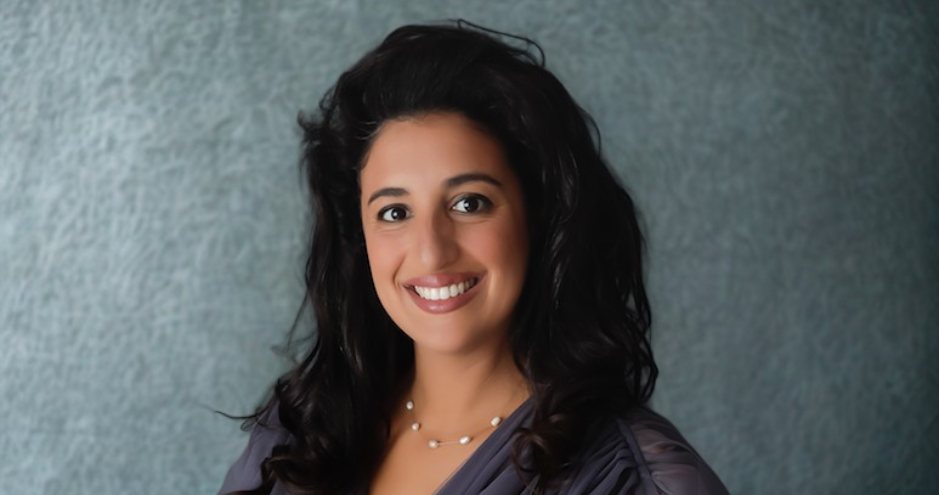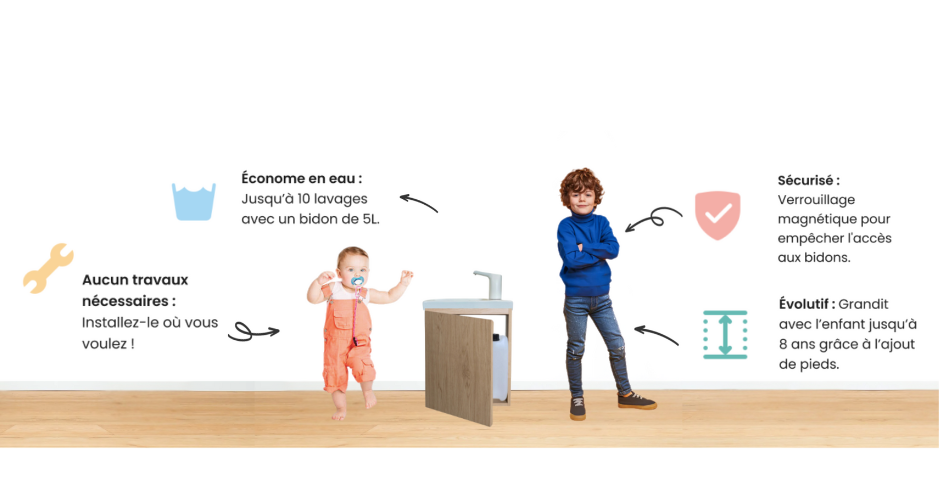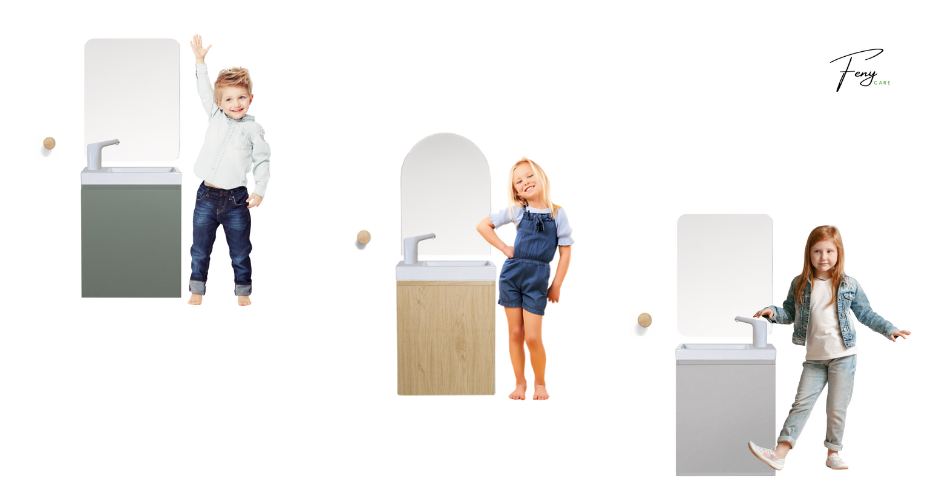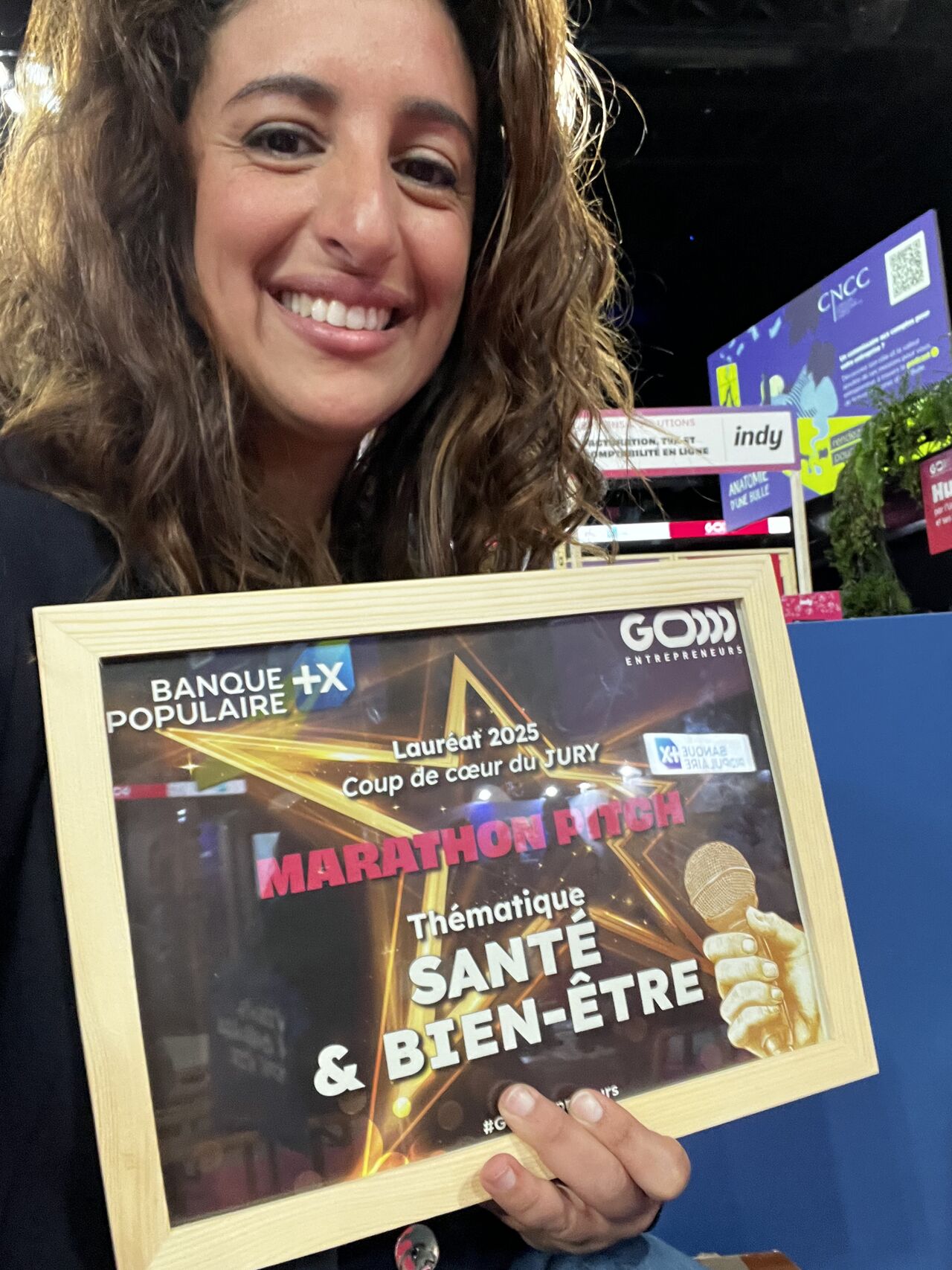Fenycare: Ingenuity Serving Childhood, by Yassmina El Fene
The world of toddlers welcomes a new invention: Fenycare (pronounced ‘funny-care’), the wash basin for children aged 1 to 7. Born from the audacious vision of Yassmina El Fene, an energy engineer turned mompreneur, Fenycare transforms learning hygiene into child's play, stimulating the autonomy and confidence of the youngest. Very sensitive to environmental issues and the preservation of resources, Yassmina has transposed her expertise and creativity into an entrepreneurial project as surprising as it is necessary. All this thanks to unwavering determination and significant support: Yassmina participated not in one HEC Paris Institute of Innovation and Entrepreneurship program, but in three! An exemplary journey that has enabled the concretization and development of Fenycare.

From Energy to Awakening: Ingenuity as a Common Thread
An energy engineer by training and passionate about innovation and ecology, Yassmina El Fene built her professional career in consulting and strategy, working with major players in the sector. Deeply solution-oriented, she has always been committed to providing concrete answers that integrate environmental awareness. But it was becoming a mother of three children that profoundly transformed her view of the world. Parenthood opened up a new field for her: that of child development, benevolent education, and sensory awakening.
This awakening led her to become passionately interested in alternative pedagogies, neuroscience, and everything that can nourish conscious, joyful, and fulfilling parenthood. A new life mission then took shape: to create bridges between innovation, ecology, and childhood. She then decided to take a professional break to train in Montessori pedagogy and better support her children. This is how she began to create solutions for her children. Faced with her daughter's passion for baths, she imagined and manufactured an ingenious bathtub equipped with an integrated closed-circuit shower head, allowing for prolonged baths without wasting water. "Even though I devoted myself entirely to my children, I kept the reflexes of my previous roles, namely finding efficient, economical, and replicable solutions as quickly as possible". But Yassmina's ingenuity does not stop at this first invention. Each specific need that she or her children encounter becomes an opportunity to create.
"Every time I or my child had a particular need and I couldn't find an answer on the market, I built it".
Fenycare: When Autonomy Becomes Obvious
The idea for the autonomous Fenycare washbasin germinated from a simple but worrying observation: her daughter fell repeatedly when using a stool to reach the sink. Aware of how this impacted her child's attitude towards hygiene practices, and in the context of a health crisis, Yassmina sought a viable solution on the market. It was clear that the existing options, particularly Montessori washbasins, had significant drawbacks: lack of scalability, bulkiness, and limited autonomy.
Driven by her problem-solving spirit, inherited from her professional experience, Yassmina embarked on the design of her own system. A first attempt, based on a camper van kit that contained all the necessary components and equipment for pumping and water supply, proved promising but unreliable in the long term.
It was then that a discussion with a Chinese factory specializing in wine dispensers marked a decisive turning point. From this collaboration was born the first prototype of the Fenycare faucet, integrating the essential components for an autonomous water supply.
A Resounding Success: From Idea to Award-Winning Prototype
The newly created wash basin unit quickly won the hearts of the children frequenting Yassmina's home, becoming a real attraction. Inspired by this enthusiasm and the realization of a real need, the idea of marketing her invention began to take root. Participation in the ‘Les Entrepreneuriades de Pleine-Vallée’ competition marked an important step, as she was awarded the ‘Jury's Favorite Prize’ for her concept. This recognition not only strengthened Yassmina's belief in her project but also sparked the interest of early childhood professionals.
Building on these initial successes, Yassmina joined the Sorbonne Incubator, thus benefiting from technical support, allowing her to file a patent for her invention to protect her innovation. The product continued to evolve, moving from a simple faucet to a complete and optimized water system.
Innovation Serving Autonomy and Ecology
The Fenycare washbasin unit is today a concentrate of ingenuity: a wooden unit made in France, easy to assemble, integrating a storage shelf and a miniaturized and removable water supply system, housed within the faucet itself. The Fenycare faucet is equipped with a dust filter, an energy-efficient pump powered by a lithium battery rechargeable via USB, and a control unit with a touch button and a 20-second timed shut-off, promoting responsible water consumption. Its flow rate is 1.5 liters per minute, which is four times lower than the most economical faucet on the market.
An adult consumes an average of 3 liters of water to wash their hands, while a child consumes 5 because they do not have control over the water. (Source: Ademe)
Installation is very simple: it requires no tools or special skills. The self-adhesive basin and the hygienic water outlet, designed to prevent the proliferation of bacteria, demonstrate attention to detail for children's safety. As for the compact unit (20 cm x 40 cm), it easily integrates into all spaces. Finally, a 5 L container (which allows for 10 washes) ensures a full day of use for a child at home. Clever accessories, such as self-adhesive and repositionnable hooks and an unbreakable and repositionable mirror, complete the set.
The Catalytic Role of HEC Paris Programs
Thanks to Yassmina's participation in various programs of the HEC Paris Innovation & Entrepreneurship Institute, the Fenycare adventure accelerated at a rapid pace. Beyond the technical obstacles she managed to overcome, Yassmina faced a major hurdle: the lack of finance. "I was a stay-at-home mom, my income was limited to unemployment benefits, and when I approached French industries, I received a quote of €200,000 for the faucet and a quote of €75,000 for a drain. Very quickly, you fall back down to earth and think: ‘Damn, my dream is going to become a memory’".
Faced with her bank's refusal for a loan, Yassmina then looked for an incubator that could help her raise funds. This is when she discovered the Stand Up program, part of the HEC Paris Social Entrepreneurship Center, whose slogan 'Launch your business without money!' immediately caught her attention. "I thought: How can that be, without money? But that's not possible! Only yesterday, I was told that it would cost a minimum of €350,000 to launch my business".
Everything changed when Yassmina joined the program: her way of seeing her project, her approach, her planning, etc.. This change in mindset allowed her to realize her project with her own funds and find partners abroad who offered her a faucet for less than €100. "Without HEC Stand Up, without Nathalie, I think I would still be looking for investors. I understood that you could create value without money, and that unlocked something in me." Yassmina realized that to develop an entrepreneurial project, you needed above all a good idea, a good product, and of course customers.
Yassmina then followed the advice of Nathalie Riond, Pedagogical Director of the program, and conducted interviews to gather the most important needs of her customers. "They didn't particularly want ‘Made in France.’ They wanted an affordable product above all". The entrepreneur then made a compromise: to produce in China, for financial reasons, to be able to offer an acceptable selling price. Once the first sales began, Yassmina joined the HEC Up program, which provided her with essential skills in commercial development, particularly in terms of positioning, sales techniques, and communication. With this training, Yassmina adopted a more assertive posture.
"At the beginning, I had trouble finding suppliers, especially those who agreed to produce in small series. Today, they are the ones coming to me."
Defining the price of Fenycare was also a real challenge. Yassmina struggled to sell the product, multiplied promo codes and often offered delivery to convince buyers. But once she understood how to set the price based on its value, everything changed. "I even increased the price… and I sold four times more", Yassmina admits.
Finally, Yassmina's recent integration into the HEC Challenge Plus program offers her support to structure her growth and consider larger-scale production. "I am very satisfied with my experience at HEC. It is often said that it takes a year to build a product. Thanks to Nathalie, there was a real breakthrough. It was like when you're stuck on a diving board… and one day, you feel it's the right moment, that you're ready to jump — and even higher. This breakthrough allowed me to optimize my time and release a first product in just 6 months."
A Startup on the Upswing
Thanks to the confidence gained in her project and the skills developed within these programs, Yassmina managed to obtain an interest-free loan of €30,000, as well as a subsidy of €16,000 (already received) and another €50,000 to come from BPI, thus attesting to the viability of her project. Yassmina also recently received the Jury's Favorite Prize at the Go Entrepreneurs trade show and the opportunity to participate in the prestigious Lépine competition, which selects the best inventions. Great recognition for a project born from a real need, conceived with limited resources but a big heart.
Today, Fenycare is in full growth, with encouraging international sales already in the US, the UK, Germany, Switzerland, Belgium, and Spain, and partnerships in development, notably with a furniture manufacturer. Yassmina also offers a leasing option to make her product more accessible. Her ambition is clear: to transform her artisanal production into a true industrial project, while remaining faithful to her values of innovation, child autonomy, and respect for the environment.


